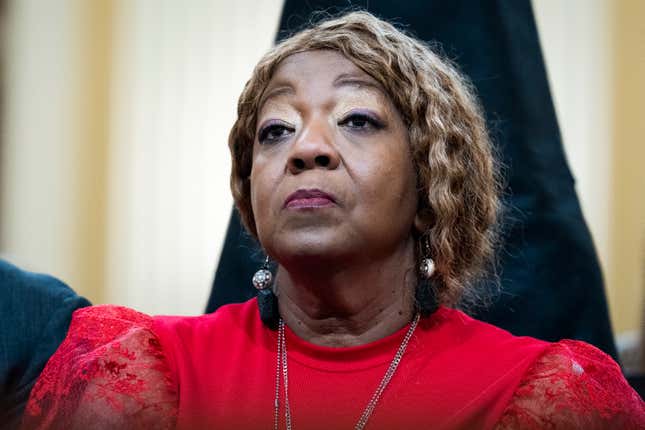
Maybe the saddest story told during the televised Jan. 6 Committee hearings was that of Ruby Freeman, a Georgia grandmother who was the target of a false rumor about vote stealing promoted by Donald Trump. Freeman, who for years had worked the polls in her native Atlanta, was harassed so badly that she had to move out of her home and was warned by law enforcement about threats to her life.
All of this, of course, was a function of Trump’s Big Lie, which itself was just a bunch of smaller lies—undocumented and dead people voting en masse, “mules” stuffing vote boxes and rigged voting machines—stitched together with thread weaker than what holds my oldest gym socks together. The fallout of those lies, in the form of death threats and doxxing and other forms of intimidation, though, were very real, as are reports of even more efforts to intimidate election workers in the upcoming Congressional midterms.
So the Justice Department says it plans to get tough on election intimidation efforts around the country, spending millions of dollars on security efforts, holding briefings with election workers and preparing for an expected rise in attempts to intimidate at the polls and beyond.
The precautions stem from the unprecedented intimidation of election officials and workers during the 2020 presidential vote — an election that Trump continues to falsely claim was rigged — even though numerous courts, law enforcement and high-ranking Republican officials have found no evidence of widespread fraud.
Workers in battleground states in 2020, notably Georgia and Arizona, have been repeatedly targeted by extremists since those states’ races were contested and lost by Trump.
The Justice Department’s moves punctuate one of the most fraught election seasons perhaps since the era of the Voting Rights Act’s passage. While the federal government, with a legislative branch currently under the control of Democrats, is focused on threats to election officials, Republican governors and GOP-controlled legislatures have passed restrictive voting laws that critics say are aimed at keeping voters who favor Democrats away from the polls.

